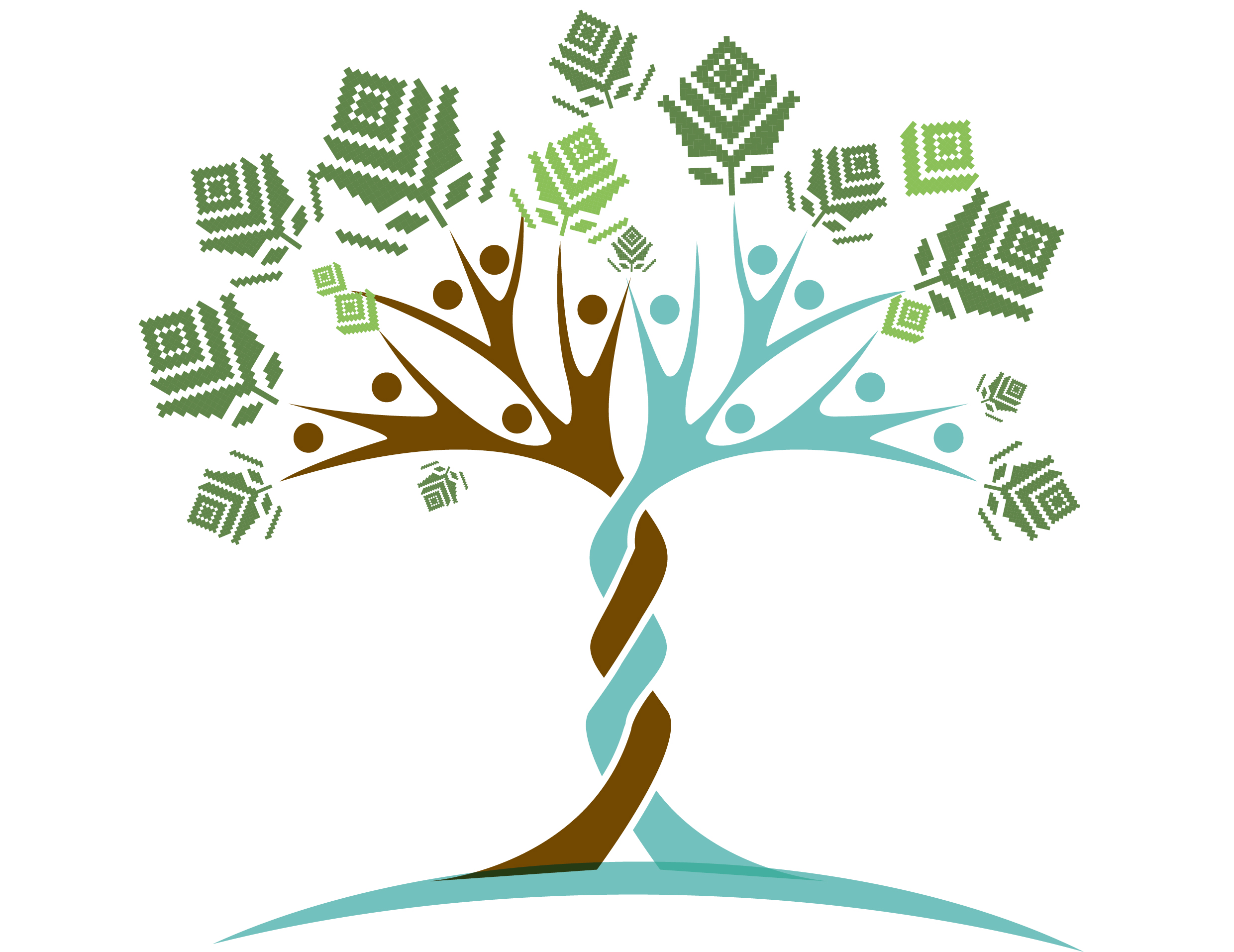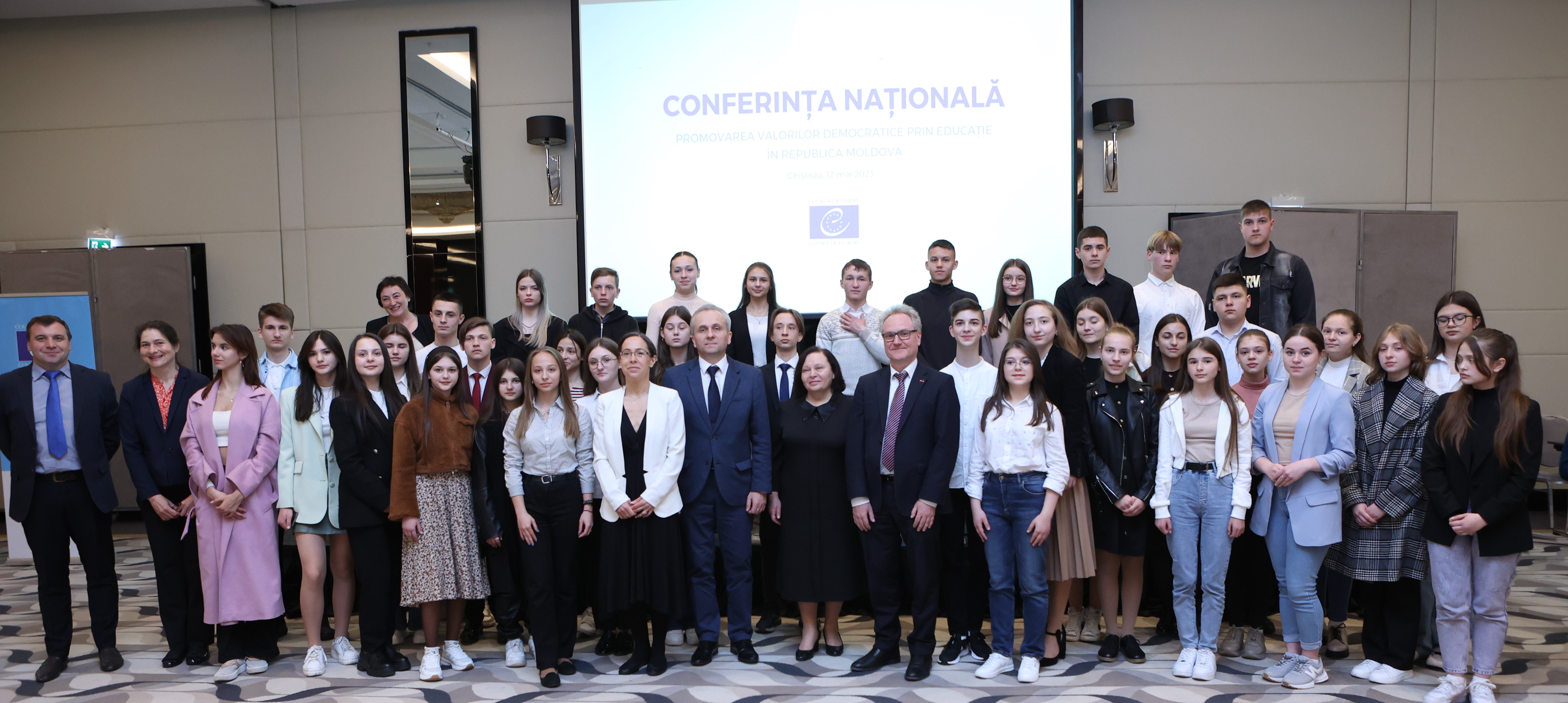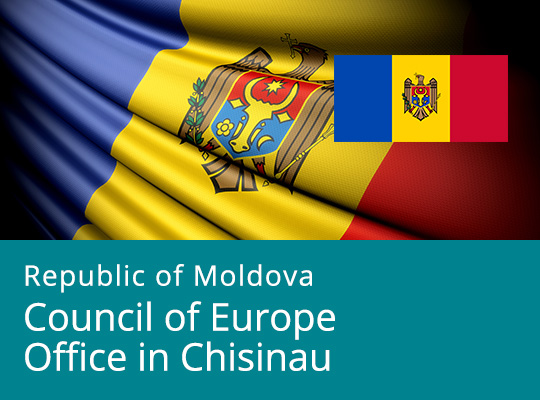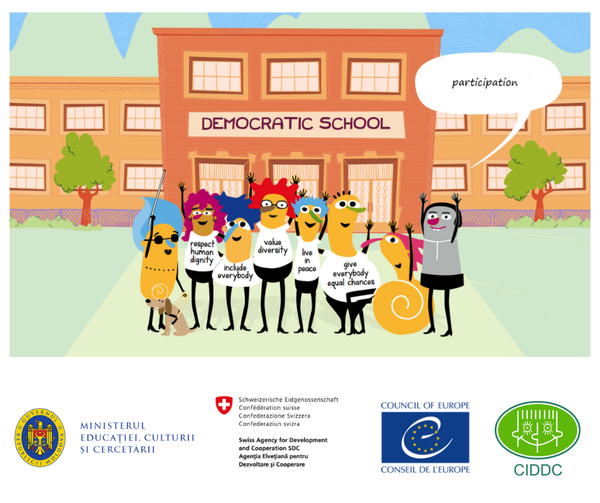The main achievements, challenges and lessons learned in the process of the gradual implementation of the “Education for Society” subject were discussed during the national conference “Promoting democratic values through education in the Republic of Moldova”, organised on 12 May by the Council of Europe in partnership with the Ministry of Education and Research of the Republic of Moldova within the “Education for Democracy in the Republic of Moldova” project.
The conference was attended by about 200 people: representatives of district education departments, non-governmental organisations, diplomatic missions and international organisations, school directors, teachers, students, etc. The participants discussed the impact of the new educational approaches promoted within the curriculum reform in the Republic of Moldova on the process of developing competences for a democratic culture.
Anatolie Topală, Minister of Education and Research, said at the opening of the conference that strengthening the capacities of the educational system in the Republic of Moldova in developing the students’ competences is a complex and multidimensional process and this is a priority for the Ministry of Education and Research. “The importance and role of education in promotion of equality, inclusion and democratic citizenship has a greater importance now. Thus, the project’s priorities are aligned to Ministry's commitments as per the EU accession action plan regarding strengthening the rule of law and democracy,” highlighted Anatolie Topală.
Giulia Re, ad interim Head of the Council of Europe Office in Chisinau said that the key objective of the Competences for a Democratic Culture is to prepare young people for life as active citizens in democratic and inclusive societies. “We welcomed and supported the education reforms in the Republic of Moldova initiated in 2018, which attribute a greater role to education in promoting democratic and European values. In the next phase, the Council of Europe will further support the integration of Council of Europe’s flagship Reference Framework of Competences for Democratic Culture in the primary and secondary cycles, including the upper secondary technical education and vocational education and training,” underlined Giulia Re.
In 2019-2022, the Council of Europe Project “Education for Democracy in the Republic of Moldova” provided the much-needed support to the Ministry of Education and Research with the process of gradual implementation of the “Education for society” subject. The Council of Europe offered assistance in drafting the policy framework and implementation guidelines on civic education and in strengthening national teacher training capacities, in particular to apply the new teaching and learning methods.
Next four years the Council of Europe will further support the integration of Council of Europe’s flagship Reference Framework of Competences for Democratic Culture in the primary and secondary cycles, including the upper secondary technical education and vocational education and training, further strengthen national teacher education capacities and the professional competences of teachers, and support the implementation in schools of the methodology on the democratic school governance.
***
The Council of Europe project “Education for democracy in the Republic of Moldova" is implemented within the Council of Europe Action Plan for the Republic of Moldova 2021-2024. The Swiss Confederation is one of the donor countries to the Action Plan and the key donor in the field of education for democracy. The project is carried out in cooperation with the Ministry of Education and Research of the Republic of Moldova and in partnership with the Swiss Agency for Development and Cooperation, the United Nations Population Fund in the Republic of Moldova and the Zurich University of Teacher Education within the programme "Moldova: Promoting Active Civic Involvement" for the years 2023-2026.









